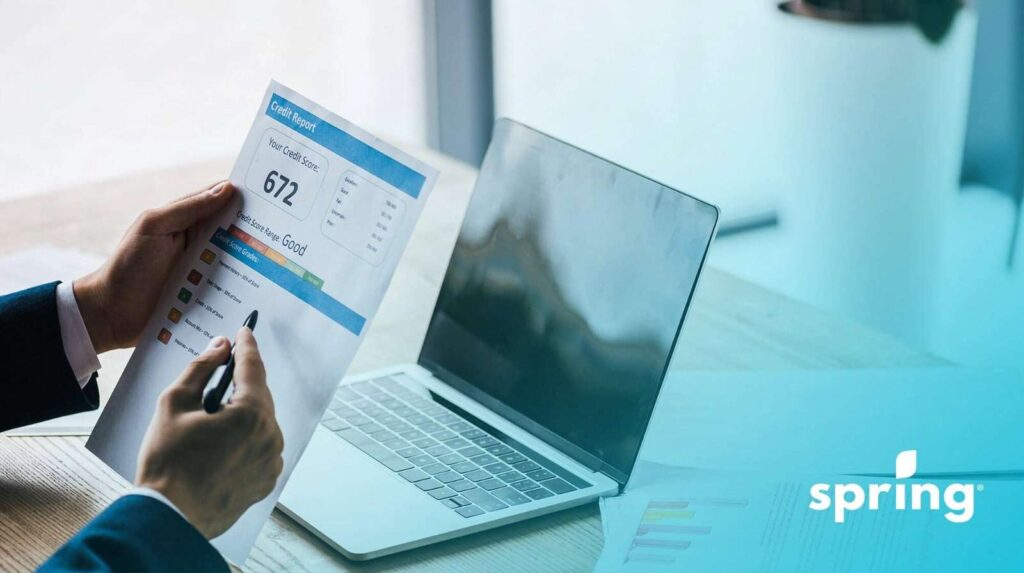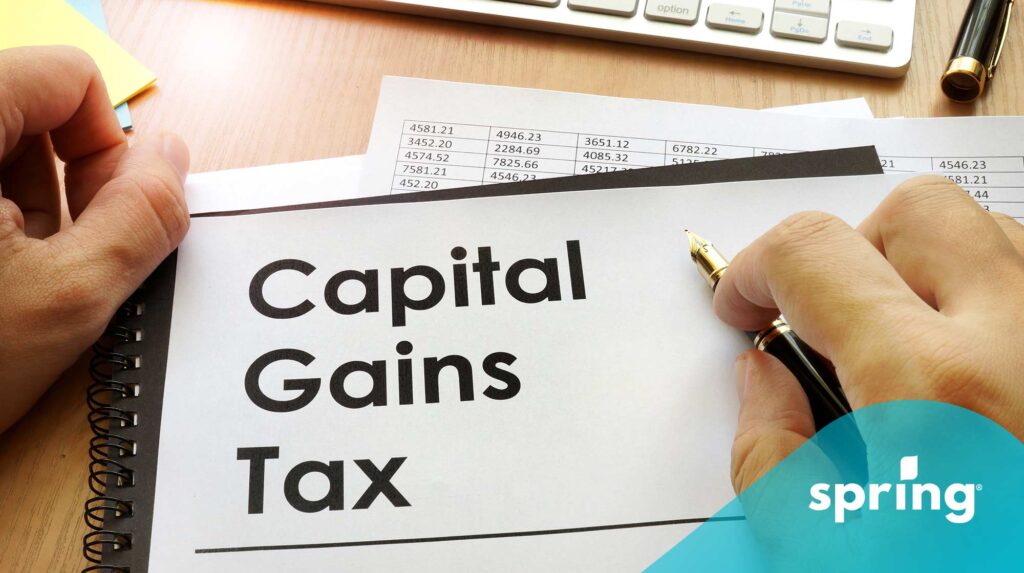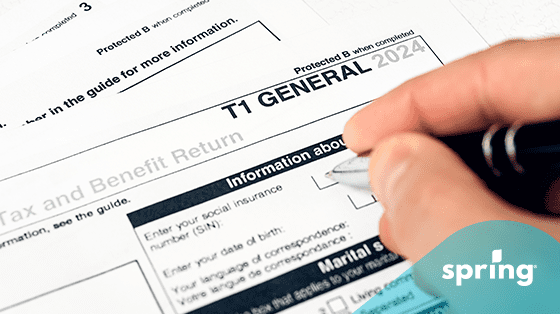How Can I Check My Credit Report for Free in Canada?
Check out websites like Borrowell, Credit Karma, and Clear Score to get a copy of your free credit report for Canada! While a hard credit inquiry can ding your credit score, this type of credit check won’t hurt your score, and you can check your free copy as often as you like.
How Often Should I Check My Credit Report?
The Government of Canada recommends that you check your credit report at least once every 6 months, especially if you intend to borrow money. Equifax and TransUnion have services you can use to monitor your report digitally and notify you of strange activity, but you might have to pay for these services.
How Do I Read a Credit Report?
You’ll find an assortment of information about your financial history on your credit report. According to the Financial Consumer Agency of Canada’s Credit Report guide, you can expect to potentially find the following information:
- Types of credit you use, like credit cards, lines of credit and all types of loans (student, car, etc.) and when you opened the account, how much you owe, if you made payments on time, if you missed any payments or if you ever went over your limits
- Mortgage Information
- Debts that were sent to collections
- Credit inquiries from lenders over the last 3 years
- Any comments (remarks) from credit agencies or from yourself regarding fraud issues, identity theft issues or other additional security information
- Your payment history on all credit accounts
- Any bank account information that is negative
- Any information that’s public record, like bankruptcies
You might also notice some letters and numbers on your credit report. For example, if you have an “I2” next to your car loan information, it means you’ve made a late payment.
LETTERS on your credit report
- I = Installment credit; you make regular, fixed payments (like a personal installment loan or a car loan)
- O = Open status credit; the amount you borrow is flexible but has a limit (like a cell phone account)
- R = Revolving credit; there’s a limit to how much you can borrow, and your repayment varies depending on how much you owe (like a credit card)
- M = Mortgage; self-explanatory, just information on your mortgage
NUMBERS on your credit report
- 0 – Very new account OR an approved line but hasn’t been used
- 1 – Paid within 30 days of billing and paid as agreed to in terms
- 2 – Late payment of 31 to 59 days
- 3 – Late payment of 60-89 days
- 4 – Late payment of 90-119 days
- 5 – Late payment of more than 120 days but isn’t a 9 (see below)
- 7 – Making regular payments using debt consolidation, consumer proposals, credit counselling agencies, etc.
- 8 – Repossession
- 9 – Negative credit information like bad debt/sent to collection/bankruptcy
All of this information is really important when discerning why you may have been denied on your recent loan application.
Errors You Should Watch For On Your Credit Report
You are entitled to file a dispute on any incorrect information on your credit report, and credit bureaus are required to correct them for free. Here are some common errors you should look out for:
- Mixed credit report: This is one of the most tricky problems to fix on a credit report, but thankfully, they’re rare. This happens when individuals with the same name get different information from their credit reports combined into one report. Sometimes, this happens when a lender sends the wrong information to the credit agency, too. If you have a very common last name, your risk of this is higher but account numbers can help to confirm this.
- Mistakes in your personal info: Is your complete name, current address, social insurance number, and date of birth all correct? Clerical errors or identity mix-ups can happen, so make sure you double-check everything, paying close attention to incorrect dates. Valid ID can quickly make these mistakes accurate.
- Creditors and businesses failing to report credit information to bureaus: If you have relevant information that would help improve your credit rating, for example, an old credit card that you’re still using and is in good standing. Follow up with the company to make sure they add it with the correct timeline.
- Accounts have been reported more than once: This can be especially bad if what’s being reported is a delinquent account or something in collections. Even if you don’t have anything negative in a duplication, still have it removed because it makes it look like you have more debt than you actually do.
- Make sure your closed accounts are actually closed: If you closed a credit account, then make sure they’re listed as such by the lender. This can affect your credit score under the “utilization” category.
- Former spouse’s debts: If you’re divorced, your ex-spouse’s debt can still be listed on your credit report, even if it’s not yours. Check with a lawyer if you are unsure if this is supposed to be there or not.
- Bad debts older than 7 years: Negative debt information shouldn’t be on your report after 7 years from the latest activity on the account has passed.
- Identity theft: A sign of this can be accounts that are on your report that you never opened and have a debt accruing on and is in delinquency/late payment (see above numbers list).
For even more information, check out the Government of Canada’s guide for checking errors on your credit report here.
How To Dispute Errors On A Credit Report
The first step in the dispute process to fix errors is traditionally by certified mail. You’ll have to contact both credit bureaus—Equifax and TransUnion—separately to dispute directly. If they confirm that an error has been made with the disputed information, they will correct the error with the correct information. Be sure to include relevant documents, such as credit card statements, in support of your dispute. These documents will not be returned to you, so only submit copies, not originals.
| Equifax | By mail Equifax Canada Co. Consumer Relations Department Box 190 Jean Talon Station Montreal, Quebec H1S 2Z2 By fax (514) 355-8502 |
| TransUnion |
By mail TransUnion Attention: Consumer Relations 3115 Harvester Road, Suite 201 Burlington ON L7N3N8 |
It takes approximately 30 days for a credit bureau to do an investigation of a dispute. To speed up the process, you can take your case to the relevant financial institution. This tool will help you find any Canadian financial institution’s complaint-handling process. The financial institution that reported the inaccurate information might quickly accept fault on the matter and verify the correction to the credit bureaus.
If the credit bureau still does not recognize the error and you’re not satisfied, you can briefly explain your credit report for free. This consumer statement provides context for the negative information and will be seen by future lenders who review your report,
If you feel like you’ve been treated unfairly by the credit bureaus you may complain in writing to your consumer affairs office.
Filing Credit Report Dispute Online
TransUnion offers online dispute resolution services. This service is free of charge. Before starting the process, you need to gather documentation like financial statements and other relevant documents that support your claim to correct errors. (i.e. marriage certificate, change of name certificate, bill payment account debits, etc.)
I Don’t Have Any Errors, But I Was Still Declined
Unfortunately, there may be no mistakes or disputed items on your credit report, and you may have bad credit. Luckily, you can do something about this, too. If you know your credit score and it falls in the “Average-to-Poor” category, then check out our guide on how to improve your credit score here.
I Have No Credit History. Help!
A small loan is a great way to start building your credit history. Spring Financial can help! We offer quick-and-easy installment loans (and other credit-building solutions) to help you pay your bills, consolidate debt, and get that home renovation or new car you’ve been dreaming of. Connect with us today to see how we can help you take that first step to a better financial future.








